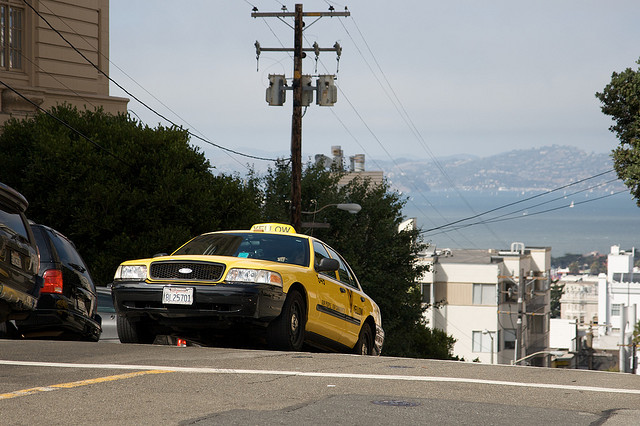On Aug. 20, a state appeals court gave Uber and Lyft more time to argue their case that they shouldn’t have to abide by a California law that requires them to classify their drivers as employees, who would be entitled to unemployment, sick leave and other benefits mandated in California.
Uber and Lyft had threatened to shut down operations last week in a high stakes game of chicken with the state. If the companies fail to win their argument in court, California voters will decide the issue this November with Proposition 22, which would carve out an exemption for the traffic network companies, as they are called by the state.
The companies have a near monopoly on rides for hire, with only a weakened taxi industry to take up the slack if Uber and Lyft decide to leave California.
Evelyn Engle with the San Francisco Taxi Workers Alliance said that would be a tall order. “Certainly taxi drivers would have done all they could to step up and fill in the gaps,” she said. “But it’s definitely at a spur of the moment like that. And in the middle of the COVID pandemic, and shelter-in-place order, it would have been difficult.”
San Francisco has far fewer taxis on the street than before ride-hailing companies began operations, she said. “At its peak, there were around 1,800 to 2,000 taxis in San Francisco that were operating around the clock,” Engle said. “As of the end of 2019 there were approximately 1,300 taxi medallions in operation. It’s a little bit unclear right now in August 2020. There’s fewer in operation right now, but part of that is because drivers have chosen not to work during the pandemic.”
If they fail to win in court or at the ballot, Uber and Lyft are reportedly considering a plan to require drivers to work for an intermediary company — such as a taxi business — that would become their actual employer, allowing ride-hailing companies to continue to operate as nothing more than technological platforms.
Engle is opposed to that idea. “In other countries where Uber is working with taxis, they’re doing so because the state or the local government forced them to do that to comply with regulations,” she said. “Here in California, if Uber and Lyft follow that model they’re doing so to avoid following the law. They’re going to try to set up this alternative system that will distance themselves from the drivers. So while it may appear similar, it’s really for a very different reason that they would go to the franchise model here.”
Uber feels confident that it will win Proposition 22 In November. The company has rolled out a program called “Working Together,” which would allow drivers to remain independent contractors while Uber makes an unspecified match contribution to what it calls “the benefits that mattered most to our drivers.” It is also proposing occupational accident insurance to cover on- the-job injuries.
The plan does not include sick leave, unemployment or vacation benefits. Uber cites a poll by Bennison Strategy Group and GS Strategy Group that found that 85% of drivers favor the “Working Together” plan or the status quo, with only 15% opting for traditional employment status.
A segment from our radio show and podcast, “Civic.” Listen at 8 a.m. and 6 p.m. Tuesdays and Thursdays at 102.5 FM in San Francisco, or online at ksfp.fm, and subscribe on Apple, Google, Spotify or Stitcher.










